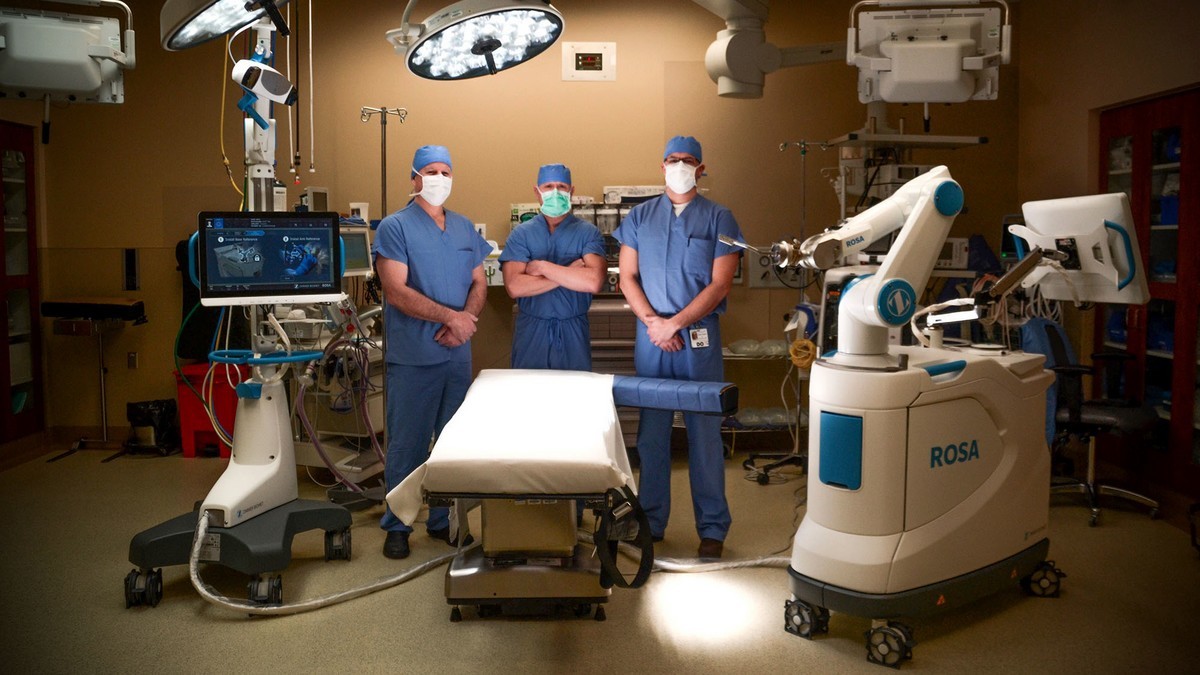MOUNT VERNON – Knox Community Hospital treats almost all types of orthopedic cases, from trauma and sports injuries to hip- and knee replacements.
“We can offer patients nearly every aspect of orthopedic care except for spine surgery,” orthopedist Dr. Gregory Cush told the Mount Vernon News. “That’s about the only thing we don’t do.”
Patients often try to live with the pain of their orthopedic problems before seeking medical help, sometimes even waiting for decades.
“With shoulder problems, rotator cuff problems patients will tell me, ‘This has been bothering me since Nixon was in office,’” Cush said. “Finally they come in to seek care, and hopefully we can diagnose them in a very prompt fashion and recommend treatment options to them.”
Patients with arthritis often struggle with the decision of when to finally get a knee- or hip replacement.
“A lot them ask me, ‘If I wait too long will it prevent me from getting my knee replaced?’” Cush said. “My answer is always ‘no.’ I will replace your hip or knee when you are ready. Waiting too long on a joint replacement doesn’t usually make the job a whole lot harder.”
Cush said that sometimes patients feel like cortisone shots are adequate enough so they hold off on knee replacement.
“When cortisone doesn’t help anymore, when medication doesn’t help and it affects your lifestyle, you are in pain 24-7 and you can’t do the things you want to do anymore, then is when they are ready,” he said.
The increasing number of patients who are obese has made orthopedic services more difficult for medical providers.
“Obsesity is an epidemic in the United States, in the world,” Cush said. “The bigger you are, the more difficult it is to get it done. We can get through it; but then postoperatively, these folks have a much higher chance of infection, of wound-healing problems, forming blood clots.”
Obesity can also cause the problems that the surgeons are trying to fix.
“Carrying around too many pounds for too many years adds forces on the knee joints,” the doctor said. “The contact forces are much, much higher. If that goes on for years and years, you are certainly more apt to wear it out.”
Cush also has skinny patients who need replacements, sometimes as early as age 60.
“But that’s just a genetic predisposition,” he said. “They were simply given bad cartilage by their mom or their dad and they just simply wore out.”
Cush does encourage patients who are obese to try to shed the extra pounds. It may be a necessity before knee- and hip replacements can go forward.
“The government has restrictions now on who we can do a replacement on,” he said. “It used to be, you could do a replacement on anybody. Nowadays, they are restricting it based on how large a patient is or their Body Mass Index.”
When obese people have complications from hip- or knee replacement, the costs can be high.
“The government doesn’t want to have to pay for that,” Cush said. “The costs can be exorbitant.”
Patients who are rejected for replacement surgery have to lose weight first, even if that means having weight-loss surgery, the doctor said.







